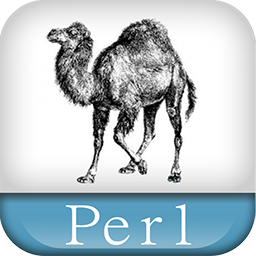Perl tutorial

Perl is the abbreviation of Practical Extraction and Report Language, which can be translated as "Practical Report Extraction Language".
Perl is a high-level, general-purpose, literal, dynamic programming language.
Perl was originally designed by Larry Wall and was published on December 18, 1987.
Perl borrows features from C, sed, awk, shell scripts, and many other programming languages.
The most important feature of Perl is that Perl integrates regular expression functions and the huge third-party code library CPAN.
Who is suitable to read this tutorial?
This tutorial is suitable for developers who want to learn the Perl programming language from scratch. Of course, this tutorial will also go into depth on some modules to give you a better understanding of Perl applications.
What you need to know before following this tutorial
Before proceeding with this tutorial, you should know some basic computer programming terminology. If you have studied PHP, ASP and other programming languages, it will help you understand Perl programming faster.
The first Perl program
For most programming languages, the first introductory programming code is "Hello World!". The following code uses Perl to output "Hello World!" ":








